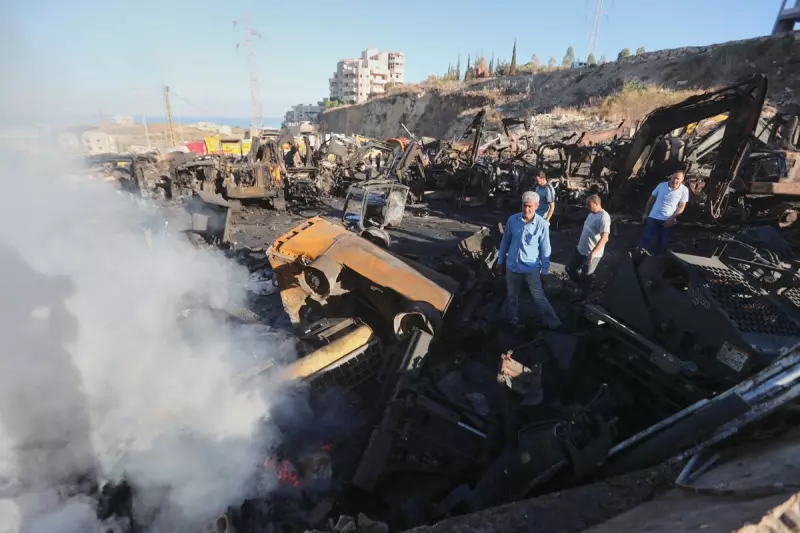
The World Bank has issued a stark warning about Lebanon's rapidly deteriorating economic situation as violent exchanges between Israel and Hezbollah intensify along the southern border.
In an exclusive statement to The Independent, a senior World Bank official revealed that the ongoing conflict is pushing Lebanon's already fragile economy toward complete collapse. The nation, which has been grappling with one of the world's worst economic crises since 2019, now faces unprecedented challenges.
Economic Freefall Accelerates
Lebanon's economy has contracted by more than 40% in recent years, with the currency losing nearly 98% of its value. The World Bank assessment indicates that the current hostilities are exacerbating this dire situation, disrupting vital economic activities and threatening what little stability remains.
The cross-border fighting has created multiple pressure points:
- Critical agricultural lands in southern Lebanon have become inaccessible
- Tourism, a key revenue source, has collapsed completely
- Essential supply chains are being disrupted
- Foreign investment has evaporated amid the uncertainty
Humanitarian Crisis Deepens
The economic turmoil is having devastating consequences for ordinary Lebanese citizens. More than 80% of the population now lives below the poverty line, with many struggling to afford basic necessities including food, medicine, and electricity.
"We're witnessing a perfect storm of economic collapse and military escalation," the World Bank official stated. "The human cost is becoming unbearable, and the international community must act urgently to prevent a total humanitarian catastrophe."
Regional Implications
The situation carries significant implications for regional stability. Lebanon's collapse could trigger wider refugee movements and further destabilise an already volatile Middle East. The World Bank is calling for immediate diplomatic intervention to de-escalate tensions and create conditions for economic recovery.
As the fighting continues with daily exchanges of rocket fire and airstrikes, international organisations are growing increasingly concerned that Lebanon may be approaching a point of no return in its economic decline.





